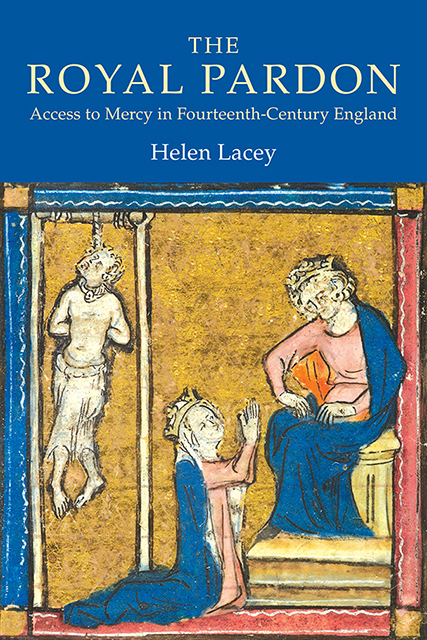Chapter Seven - The Evolution Of Group Pardons
Published online by Cambridge University Press: 07 March 2023
Summary
Political Amnesties
Throughout the fourteenth century the issue of an amnesty was becoming an increasingly important part of the act of political reconciliation. While there was no absolute shift away from the idea of reconciliation through a renewal of homage, there does seem to have been a change in emphasis away from the idea that the offender was being restored into the feudal relationship with his lord, and towards the idea that he was being readmitted into the king’s peace. There were, of course, further nuances in the message that the grant of an amnesty could convey. In the aftermath of a rebellion on the scale of the Barons’ Wars in the 1260s, the grant of a political amnesty could be used to rebuild the authority of the king. This was an authority based on a working relationship with the political community, and so a public act of reconciliation placated both parties and allowed them to collaborate in the running of government. The Crown could also use the grant of an amnesty to remind a recalcitrant vassal, such as the Welsh prince Llywelyn ap Gruffydd, of their place, or emphasise the guilt of the recipient in cases where the blame was disputed. Importantly, an opposition faction such as the Lords Appellants in 1387 could also, in theory, indemnify themselves against future reprisal. Central to such pardons, however, was the obligation the Crown owed to its subjects to reconcile them to its authority and to allow them to share in the benefits of its grace.
As the Crown, usually with the advice of Parliament, took the initiative in issuing these political amnesties, most were given statutory form and proclaimed in each county in order to inform the inhabitants of their availability. However, the exact procedure for obtaining pardon under the Crown’s terms was not clearly defined. The 1266 Dictum of Kenilworth referred to royal officers authorised to receive supplicants back into the king's peace, which they were to do within forty days of the issue of the ordinance. Whether all those who were received then pursued their claim by purchasing their own copy of the pardon from Chancery is unclear. The names of those pardoned were certainly recorded in the patent rolls, but they were entered under a copy of the relevant letter patent in long lists, rather than in separate entries with their own date and note of warranty.
- Type
- Chapter
- Information
- Publisher: Boydell & BrewerPrint publication year: 2009



